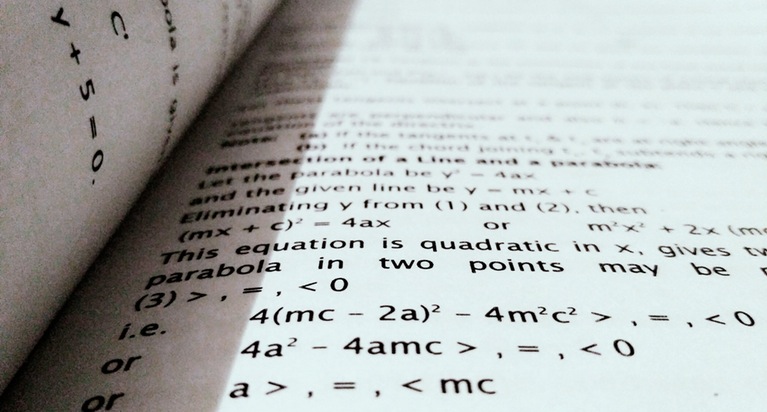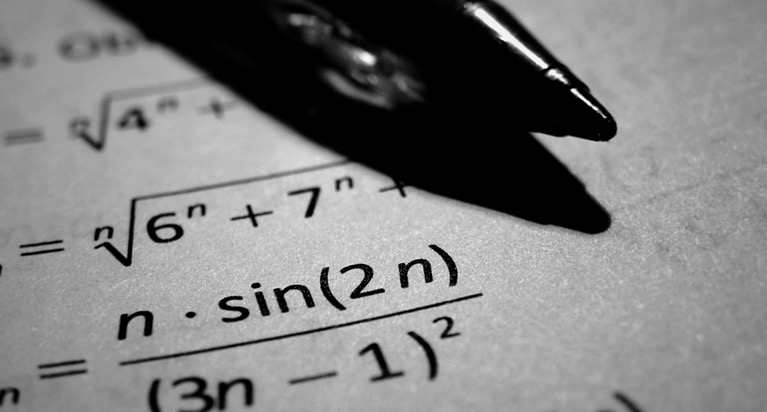
Picture this:
Your child is sitting in the kitchen, staring at the table. He has a pile of math homework to start, but you just can’t.
Finally, he asks for help. You take a look see a complex word problem. Your least favorite. You both want to quit.
Sound familiar?
You’re not alone. In fact, 4 out of 10 Americans hate math.
If your student is among the four, we have some tips to help them get better at math and start enjoying homework. Our advice comes from a number of Elite Academic administrators, faculty and staff who are all highly qualified and experienced.
5 Ways to Get Better at Math
1. Implement math in your daily routine

The old saying, “practice makes perfect” rings true for math. There are a few easy ways you can practice math with your child while doing daily tasks. These tips come from Elite faculty:
- When you go to the grocery store, try adding up all the items in your cart with your child and see if the total you got is what shows up at the cash register.
- Then when your student gets good at that, try dividing it four ways: How much would the bill be if we split it up between mom, dad, brother and sister?
- Or try baking a new recipe, and calculate what it would take to double the recipe.
Math is found around you wherever you go; don’t stop exercising your brain!
2. Play games that require math

Again, it’s all about incorporating math into everything you do. Even the fun things! There are several board games that include math in some form. Here are a few games you can play with family and friends:
You can also play a few video games created by StrongMind curriculum, which is offered at Elite. There are fun exciting graphic games you can play here.
3. Teach key phrases to make word problems simpler

Word problems can be daunting. But there are several common phrases you’ll find in every word problem. And if your child can translate those, they’ll get through word problems in a cinch! Here are a few common phrases:
Phrases meaning addition:
- Sum of
- Yields
- More than
- Combined
- Total of
- Together
Phrases meaning subtraction
- Decrease
- Difference between
- Less than
- Fewer than
Phrases meaning division
- Per
- Out of
- Ratio
Phrases meaning multiplication
- Of
- Times
Phrases meaning equals
- Yields
- Is (are/were/was)
- Sold for
Have your student take a deep breath before you start. Remind them that it might be daunting, but they can break it down. Find the key phrases and write the math symbols out. Eventually, they will be able to put together a math problem and solve it.
4. Memorize formulas through simple repetition

Have your student practice using the formulas again and again. After a lot of repetition, it gets easier to remember the formulas and the methods and then solving the problems becomes second nature! The second thing is to try to take careful notes and keep them– even after passing that math class. When your student gets into college and has to take additional math courses, you can always go back and refer to old notes if you forgot how something is done!
5. Remember, in order to get better at math, three things are required:
Improving in math requires patience, a good attitude and an open mind. Here is an encouraging thought from a math instructor.
“Yes, math can be difficult and even frustrating, so when you feel stuck, the mind wants to give up. But don’t give up! Have patience. Albert Einstein said, ‘It’s not that I am so smart. But I stay with the questions much longer.’ If you get upset about a math problem, take a deep breath, don’t rush. Try to look at math as a game or a puzzle rather than as a chore. With that perspective, math becomes doable and even fun!”
If you are struggling in math, the best thing you can do is reach out to your teacher for help. Your instructors are available via phone calls, emails, instant messages and online sessions to make sure you excel in your courses.
We will leave you with a few inspiring thoughts from online math instructor:
- You are not the only one who struggles, so do not panic.
- Stay organized, keep good daily notes especially keep the formulas handy-with clear meaning of each term in the formula. It is also useful to have a good reference such as BASIC MATH REVIEW ( here is one such resource)
- Do the workbook, checkpoint, exam questions step-by-step in your notebook–and not quickly jump to one of the answer choices–so that you can identify the error.
- Workbook practice is important in mastering a topic – so if needed, attend the live online sessions and get some help from your instructor.
- Keep pace by doing your daily lesson.
- Review your notes and especially the topics you struggled with, before taking the final exam.





